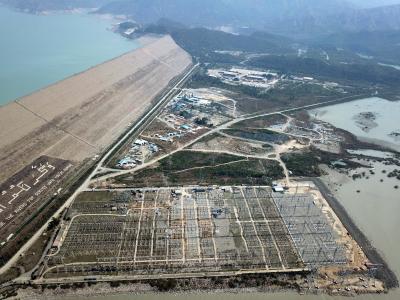Amid power shortage in Pakistan, the 969-megawatt (MW) Neelum-Jhelum hydro power project, shut down in the country due to leakage in the tunnel, reports said.
The project was completed at the cost of Rs 508 billion. The reason for the closure of the power project is due to major cracks in its tailrace tunnel, the Dawn reported.
Power Minister Khurram Dastgir Khan said during an interaction with the media that “Neelum-Jhelum is unfortunately offline. Details of its suspension or fault have not been concluded yet and full investigations are under way of all its channels, which are deep and long, some of them under huge mountains.”
The project was completed in 2002 after 21 years of delay and was completed in 2018 — with escalating cost and missed deadlines. In the project, the construction of about 58 km of tunnels was executed by Chinese company CGGC-CMEC (Gezhouba Group) which commissioned the work in December 2007.
The project was producing 1,069 MW against its installed capacity of 969 MW and was generating more than five billion units of electricity to the national grid at an average rate of about Rs 9 per unit.
According to Dawn, the WAPDA — Water and Power Development Authority, which handles operation of the hydropower stations, has confirmed that the “tailrace tunnel has been blocked and as a result the power station has been closed for safety reasons”.
WAPDA said in a statement: “The reasons for the closure of the tailrace tunnel are currently being investigated. Steps would be taken to remove the blockade of the tailrace once the reasons are known.”
It said that all power companies had been informed of the closure of one of the country’s top hydropower plants and the Water Resources Ministry has issued a circular on it
However, the Minister claimed that the power supply situation had improved in the country as the Tarbela power project had increased its generation by 2,500 MW.
He said the Tarbela power station had attained a power generation level of 3,684 MW from just 1,125 MW due to better river inflows and coal imports from Afghanistan.
As a result, there was about a 50 per cent drop in power shortfall of 4,000-5,000MW.
The power Minister said that the peak demand has come down because of improved weather conditions. He said that power cuts will drop during Eid days as the 1,100MW unit 2 of Karachi Nuclear Power Plant (K-2) will begin operation.

